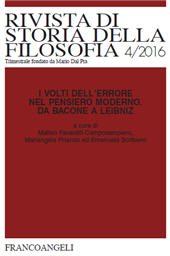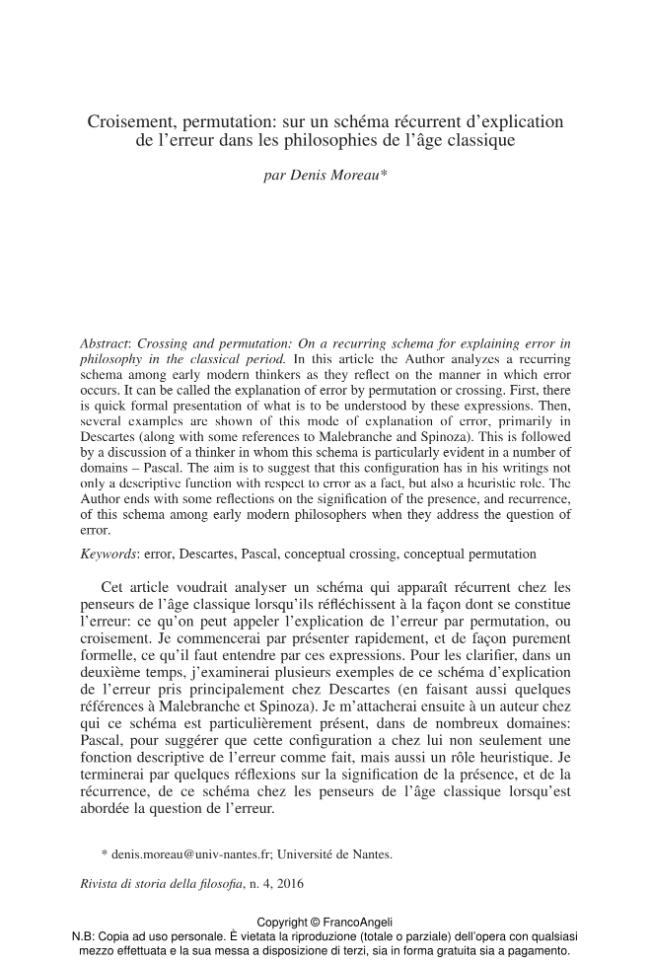Croisement, permutation : sur un schéma récurrent d'explication de l'erreur dans les philosophies de l'âge classique
615-631 p.
In this article the Author analyzes a recurring schema among early modern thinkers as they reflect on the manner in which error occurs. It can be called the explanation of error by permutation or crossing. First, there is quick formal presentation of what is to be understood by these expressions. Then, several examples are shown of this mode of explanation of error, primarily in Descartes (along with some references to Malebranche and Spinoza). This is followed by a discussion of a thinker in whom this schema is particularly evident in a number of domains - Pascal. The aim is to suggest that this configuration has in his writings not only a descriptive function with respect to error as a fact, but also a heuristic role. The Author ends with some reflections on the signification of the presence, and recurrence, of this schema among early modern philosophers when they address the question of error. [Publisher's Text].
-
Articles from the same issue (available individually)
-
Information
ISSN: 1972-5558
DISCIPLINES
KEYWORDS
- Error, Descartes, Pascal, conceptual crossing, conceptual permutation



